In the realm of home health care, obtaining proper licensing stands as a cornerstone for ensuring quality service delivery and regulatory compliance. The Home Health Care Agency Business Start-Up Guide meticulously delineates the licensing process and its pivotal role in maintaining standards within the industry. Here are some points elucidating the benefits of operating with a home care license and the indispensable role of home care licensing in quality assurance:
Legal Compliance and Professional Credibility
Acquiring a home care license is not merely a legal obligation but also an emblem of professional credibility within the industry. A license indicates a dedication to following legal requirements, moral principles, and recommended caregiving procedures. Knowing that the home health care agency they work with adheres to strict legal guidelines and maintains a high standard of professionalism gives clients peace of mind.
Ensuring Safety and Accountability
The operations, staff, and infrastructure of the home health care agency are subject to a thorough examination as part of the licensing process. Agencies are forced to have strict safety measures in place by following licensing regulations, such as background checks on employees, medication management policies, and emergency response plans. These precautions not only lessen possible dangers but also promote an accountability culture in which caregivers are held to high standards of behavior and care.
Facilitating Quality Assurance and Continuous Improvement
Home care licensing catalyzes quality assurance initiatives aimed at enhancing service delivery and client outcomes. Regulatory authorities evaluate an agency’s conformity with established standards and pinpoint areas for improvement through recurring inspections, and compliance reviews. License evaluation feedback helps agencies enhance the quality of care they offer clients by helping them fine-tune their procedures, hire more staff, and launch quality improvement projects.
Enhancing Consumer Confidence and Public Trust
A valid home care license shows clients that the agency is honest, transparent, and accountable. It demonstrates the agency’s dedication to performing well and abiding by the law. The agency providing care for their loved ones needs to be trusted, which makes this licensing extremely crucial. A license gives the clients, and those who endorse the agency a sense of security and fosters strong bonds with them.
Navigating Regulatory Complexities and Mitigating Legal Risks
Agencies operating without a home care license run the risk of fines, penalties from the government, and harm to their reputation. The licensing procedure acts as a guide through the federal laws that control the delivery of home health care services. Agencies can preserve their operational sustainability and the welfare of caregivers and clients equally by following licensing regulations, which reduce the danger of fines, penalties, and legal conflicts.
In essence, the journey toward obtaining and maintaining a home care license is far more than a bureaucratic exercise—it is a testament to an agency’s unwavering commitment to excellence, integrity, and client-centered care. The Home Health Care Agency Business Start-Up Guide underscores the process of home care licensing. By embracing the licensing process as a cornerstone of quality assurance, home healthcare agencies can work toward sustained success, operational excellence, and unparalleled client satisfaction.
